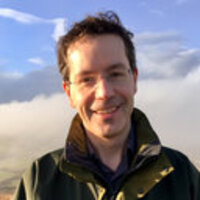Abstract:
Global weather and climate models have significant regime-dependent systematic errors of cloud and its impacts on radiation, many of which are common across a range of different modelling systems. Here we describe how the systematic cloud and radiation errors in the ECMWF global numerical weather prediction (NWP) model have reduced over the last decade, and how the use of observations and data assimilation has helped to understand the source of errors and implement improvements to the physical parametrizations.
In particular, top-of-atmosphere reflected shortwave radiation is a key quantity for model assessment as it is well-observed globally, fundamental for driving the atmospheric dynamics and is strongly affected by cloud. It is shown how short-range forecasts can be used to understand the model radiation errors and link them to specific deficiencies in moist physics parametrizations. Examples include the radiation biases linked to boundary layer cloud structure over the subtropical oceans, and storm-track radiation biases linked to the representation of supercooled liquid water.
In addition, direct and indirect observations of cloud are becoming increasingly incorporated in data assimilation systems. Cloud-affected (all-sky) radiances at microwave frequencies (and to a limited extent, infrared frequencies) are routinely assimilated at ECMWF and there is increasing interest in the possibility of assimilating radar, lidar and shortwave (visible) wavelengths. This puts increasing emphasis on the fidelity of the model cloud fields in terms of the amount of condensate, cloud phase, vertical structure, particle properties, and their impact on radiation.
What is the Joint Oslo Seminar (JOS):
- Atmospheric and climate sciences have a stronghold in Oslo among the four institutions University of Oslo, the Meteorological Institute, CICERO and NILU.
- This joint seminar invites renowned international experts to contribute to an informal series of lectures, meant to create interaction with the Oslo atmospheric and climate science community on recent highlights and analysis in the field.
- All seminars will be held on Thursdays (Noon -1pm).
